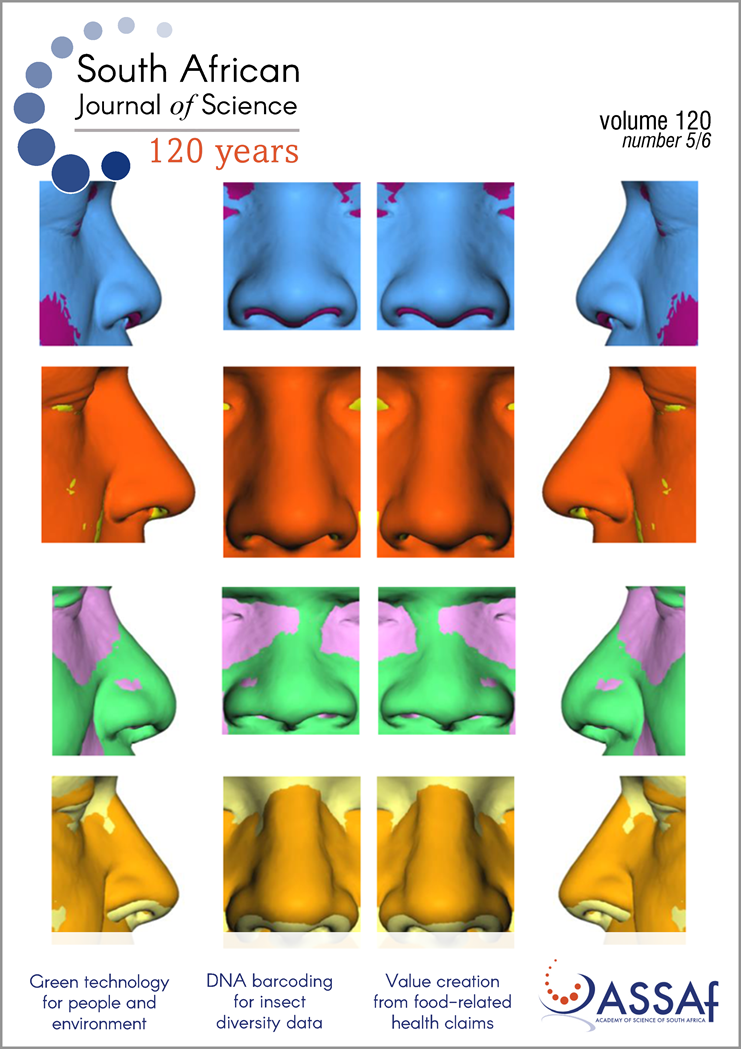Multi-stakeholder value creation and appropriation from food-related health claims
DOI:
https://doi.org/10.17159/sajs.2024/14091Keywords:
value creation, health claims, food labels, non-communicable disease, qualitative researchAbstract
Health claims are considered a means to add value to food and beverages; however, it is not always evident which stakeholders benefit and to what extent they benefit. In this paper, we extend the investigation of value creation and appropriation into the domain of food, specifically food labels. Using a qualitative approach, we aimed to elucidate which forms of value can be created by legislating health claims (including those for bioactive compounds found in South African indigenous plants) on food labels. The findings reveal that health claims have the potential to advance the sustainable development agenda in South Africa, but only if structures can be put in place to appropriate human and intellectual (HI) value, as well as environmental value. Currently, there is strong evidence for economic value creation and appropriation potential, but little clear evidence that HI or environmental value will be appropriated from health claims, especially if these health claims exclude benefits from bioactive compounds found in indigenous South African plants. If we could find a means to measure the HI and environmental value creation potential of health claims, using metrics that people understand, we may be able to develop strategies to ensure that such products can benefit stakeholders beyond economic value alone (i.e. more sustainable value creation). The findings could directly impact food labelling policy formulation, considering current draft regulations to implement health claims in South Africa.
Significance:
The medicinal plant biodiversity of South Africa offers opportunities for economic, human and intellectual (HI), and environmental value creation through legislated health claims. Without clear metrics for the HI and environmental components, economic value creation may dominate, but the value created might not be sustainable or appropriated by the desired stakeholders. Furthermore, because the current draft legislation for health claims excludes any bioactives from indigenous South African plants, much of the economic, HI and environmental value creation potential reported as potential outcomes for this research (e.g. funds to communities, knowledge preservation or biodiversity conservation) will not materialise.
Downloads
Additional Files
Published
Issue
Section
License

All articles are published under a Creative Commons Attribution 4.0 International Licence
Copyright is retained by the authors. Readers are welcome to reproduce, share and adapt the content without permission provided the source is attributed.
Disclaimer: The publisher and editors accept no responsibility for statements made by the authors
How to Cite
- Abstract 497
- PDF 99
- EPUB 404
- XML 395
- Supplementary material 428
- Peer review history 40
Metrics
Funding data
-
National Research Foundation
Grant numbers MND190508435061 -
Department of Science and Innovation, South Africa












.png)